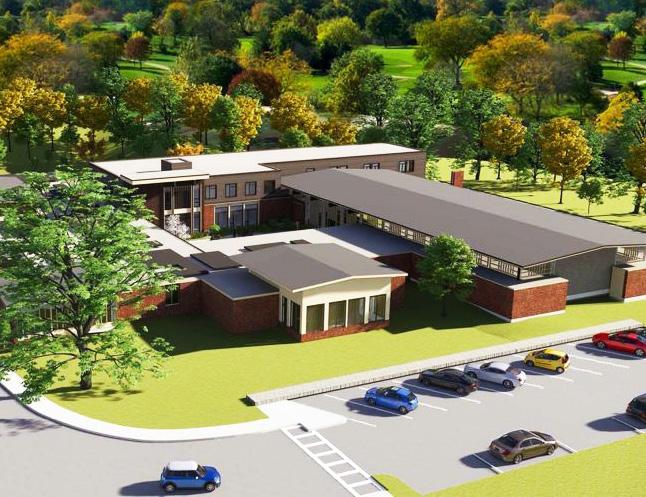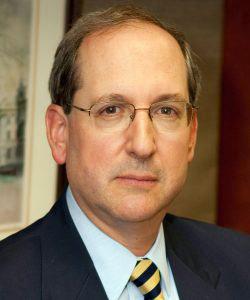
12 minute read
Antisemitism on Campus
UP FRONT
CONNECTICUT JEWISH LEDGER | SINCE 1929 | APRIL 2, 2021 | 20 NISAN 5781
Webinar addresses antisemitism on campus – including UConn
BY STACEY DRESNER
HARTFORD–Last October, three separate instances of antisemitic vandalism occurred in a residential complex on the University of Connecticut campus in Storrs.
“There was a lack of response from the UConn administration, and that left Jewish students on campus feeling very unsafe and unsupported by this institution that they look to, to protect them and educate them,” said Dori Jacobs, president of UConn Hillel.
Jacobs didn’t take that lack of concern from the administration sitting down.
“I reached out personally to our president and to our chief diversity officer and asked for a response,” she said. “I asked why they were ignoring these incidents that are making students on their campus feel so unsafe.”
An open letter signed by 300 students was sent to UConn President Thomas Katsouleas and a dialogue began between Katsouleas and Jacobs. Soon a statement went out to the entire UConn community from the president denouncing the antisemitic incidents, in addition to several other measures designed to help deal with and prevent future antisemitic acts. This included working with the student government on legislation officially adopting the International Holocaust Remembrance Alliance’s (IHRA) definition of antisemitism, and coming up with protocols for dealing with incidents of antisemitism and other bias in the future.
Unfortunately in February, another incident occurred – a swastika was drawn on the wall of a men’s bathroom in UConn’s biology/physics building.
And UConn is not alone. Antisemtism is on the rise on college campuses across the nation.
On Wednesday, March 17, the Jewish Community Relations Council (JCRC) of the Jewish Federation of Greater Hartford, the Connecticut office of the ADL and the Simon Weisenthal Center presented a webinar on the subject, “Antisemitism on Campus: Are We Ensuring a Safe Environment For the Jewish Community?”
Attempting to answer that question were Ethan Felson, executive director of A Wider Bridge, an LGBTQ organization that supports Israel and advocates for LGBT rights in Israel, and former director of the Jewish Community Relations Council of Greater Hartford; and Frederick M. Lawrence, CEO of Phi Beta Kappa Society and former president of Brandeis University.
Psychologist Dr. Dale Atkins mediated the discussion, which began with Jacobs’ comments about dealing with the antisemitic vandalism last fall at UConn and how Hillel and the administration are handling the issue now.
“Now what we’re working on doing is not being so reactionary – [not] only working to fight antisemitism when it happens to us – but instead, being proactive and educating people ahead of time so that these incidents don’t occur at all,” Jacobs said. “And I’d say the biggest lesson that we learned in all of this is that you have more allies than you think. The second that you start to speak up about these issues, people will come forward and be on your side and fight with you.”
Felson addressed Jacobs’ story in his opening comment.
“How I wish it wasn’t the first time that I heard that story. I’ve heard that story from student after student for so many years. But the campuses are not burning.
Most students on campus feel safe and secure in their Jewish identity but not all. And the problem is getting worse, at least in my observation.”
Felson, a native of West Hartford, spoke of a recent online forum with students.
“I spoke with three of them that were LGBTQ, and each one of them…expressed to me that it’s harder for them to be Jewish on campus, then to be queer… I spoke with a student who said that she was told she couldn’t serve on a committee that would be overseeing a campus election that had to do with an issue related to Israel because she was Jewish and it was presumed that she would be biased, and students who are on, as it were, the other side of that debate, weren’t given the same ouster. The good news is that there are a lot of people who are there to support students,” including Jewish Federations and their Jewish Community Relations Councils and the ADL, Felson said.
Dealing with antisemitism or anti-Israel sentiment on campus is “complicated,” said Lawrence, a civil rights scholar and free expression advocate in his opening statement, “because it actually falls at the intersection of two different core values of our society [and] our academic institutions.
“One is free expression, free inquiry, the ability to try out ideas that aren’t popular that you’re not even sure you believe…to express your views and develop your views.
“And on another side is the idea of building an academic community, a diverse community, an equitable community, and an inclusive community, which for the American Jewish community has been one of the great blessings of the last century or more of being able to be safe on campuses… Those things don’t always fit evenly and easily together. That’s part of the challenge here…How do you navigate all of those issues…in a way of making sure that people are safe to express unpopular views? I often said to groups of students… ‘I’m not going to agree with everything you say but I am going to defend your right to say it,’ within certain broad limits. And those limits are going to include that you can’t threaten
ETHAN FELSON DISCUSSES ANTISEMITISM ON CAMPUS AT THE RECENT ADLSPONSORED WEBINAR.
CONTINUED ON THE NEXT PAGE
Hebrew College announces relocation to Newton, Mass. campus
BY PENNY SCHWARTZ
BOSTON (JTA) – Two years after Hebrew College sold its distinctive building to pay off debt, the pluralistic institution has announced that it will be moving in with a nearby Conservative synagogue.
Located less than five miles from Hebrew College’s current space, Temple Reyim’s campus in Newton, a Boston suburb with a long established Jewish community, is already home to Mayyim Hayyim Living Waters Community Mikveh and Education Center, a Jewish after school program and the Zamir Chorale of Boston.
Hebrew College’s move, announced on March 16 and planned for December 2022, caps a decade of uncertainty and budget woes and staff reductions for the college, even as its rabbinical school and adult learning programs have grown steadily. The school celebrates its 100th anniversary this year.
Hebrew College President Rabbi Sharon Cohen Anisfeld told the Jewish Telegraphic Agency that she knew finding the right home for the school was a top priority when she was installed in 2018 as the first woman to lead the college.
“On the one hand, our new home would have to be affordable and sustainable. … On the other hand,

A RENDERING OF THE PLANNED SHARED CAMPUS BETWEEN TEMPLE REYIM AND HEBREW COLLEGE.
(COURTESY OF PRELLWITZ CHILINSKI ASSOCIATES)
CONTINUED ON THE NEXT PAGE

CONTINUED FROM PAGE 5
somebody. We can’t make somebody literally afraid. But you can challenge somebody and you can provoke somebody.”
Lawrence suggested a new way for students to discuss Israel with those who don’t support it.
“Israel is not a conflict, Israel is a country. Don’t fall into the habit of making Israel the conflict,” he said. “That is the way those who are deeply anti-Israel would love to frame it, and now we’re fighting with them… I don’t have to fight about Israel’s right to exist. Israel has a right to exist. That’s goes on that list of things we hold to be self- evident. Let’s talk about other pieces about Israel that people may not know and that they should know. That’s why I love the work that Ethan is doing in the LGBTQ area because that’s a piece of Israel that not everybody gets…but that’s not about the country, it’s about the people and the culture and something everyone should hear.”
Lawrence stated that “strong criticism of Israel is not the same thing as antisemitism.”
“Antisemites are often critical of Israel, and there is criticism of Israel that is antisemitism, but not all criticism of Israel is antisemitism,” he continued. “We’ve got to be careful if we want to keep our allies that we also walk that line, because a lot of times in our community, for reasons I perfectly well understand, there’s a real sensitivity on this, and you pull back too fast and you expect somebody to run in. So, should the university run in in a case like Dori’s case? Absolutely. That’s bonafide antisemitism. When somebody is having an Apartheid Awareness Week or Palestinian Rights Awareness Week, there are parts of that are going to brush you against the grain to be sure, but I don’t think you want to start claiming it’s Title VI violation [of the Civil Rights Act].”
Felson stressed that that students may be able to get through to those on the opposite side of the issue by sharing their stories about Israel.
“One of the things that we think we need when we go into the Israel conversation is to know every single fact. But this isn’t a battle of facts, it’s not my history versus your history, and if we understand young people today we know that they crave multiplicity. They can live with multiple narratives. But those narratives are built of stories. If you’re hearing a story of suffering of a Palestinian, we’re not negating that story. We have to prepare students [for that story] so that the foundation that we’ve given them is not knocked out from underneath them.
“They have to be able to approach this with empathy,” Felson explained, “but they also have to, at the end of the day, help people to understand that Israelis are trying to build a fair and decent society, and they’re forced to take risks to defend themselves. And that’s done with stories – how they come to their Jewish identity, how they became attached to Israel, and if they traveled Israel… to tell the stories of the people that they met there who are real life people.”
Felson said that study abroad in Israel is a way to learn those stories.
“It’s incredibly important in terms of our telling our story for our students to be able to travel to Israel. Storytelling is at the center of our ability to be effective advocates. Being there in person is important and there are people who want that not to happen. They’re going after these study abroad programs,” Felson said. “Let’s not wait for those programs to be under attack. Let’s make sure that the policies are in place that are going to protect them.”
Lawrence said that the time to “build bridges” is before an incident occurs.
“The real goal is to build these bridges ahead of time so that they exist. I think those bridges have to be built by the students.”
Lawrence said that faculty and administrators can help to facilitate those bridges on campus, using the example of a program he helped create at Brandeis called Brandeis Bridges. The group brings Jewish and African American students together for conversations about religion and race.
“Then when things happen, you’re not starting from zero, you’ve got a relationship,” Lawrence said. “So more than anything it’s about building bridges, making relationships, understanding it’s not always going to work easily. People are going to misunderstand each other. That’s okay. It’s much better to engage, be a little misunderstood and then go forward, than to separate and be isolated, because that’s a disaster.”
When asked for tips on how students
FREDERICK M. LAWRENCE
can combat personal antisemitic acts, Felson said to start locally.
“The first thing is, connect with other Jewish students and find support within your own network. Allyship is important in those situations. There’s a Jewish Federation just about everywhere and they are there as resources: the Israel Action Network is there as a resource. The ADL is a resource… The Israel on Campus Coalition is there as a resource for students.
“But the first thing is to start local in terms of making sure that you as a student have support, and that can come within the office of the dean of students… within Residence Life. You have to feel safe and secure. And then you can build in resources from campus and national or from community and national organizations.”
Strong Jewish organizations on campus are crucial.
“One thing that is essential is a properly resourced Jewish Student Union, Hillel, Israel studies department, Jewish studies department. They have to be able to bring the right people onto campus in order to help create that marketplace of ideas,” Felson said. “I would also say that there are times when the climate on campus becomes so hostile that it crosses a line, and in very limited situations there’s legal recourse that is available to students first within the campus disciplinary process. Those students need support. And if there are hate crimes, there are legal recourses to deal with that.”
Felson suggested that it helps if Jewish students are represented across all areas of student life.
“We need to help them run for student office. They need to be involved in LGBTQ life. They need to be involved in residential life. They need to have those relationships and be fully present in them, as Jews. And again, it’s not about coming in with a set of talking points. It’s about coming in with their stories.”

CONTINUED FROM PAGE 5
the move couldn’t just feel like a story of contraction and loss,” she told JTA. “It had to feel exciting, generative, hopeful – a compelling vision for the college and for the wider community.”
That vision is achieved under the shared campus plan, she said. Several other Boston-based groups – including the Jewish Arts Collaborative; the Jewish Women’s Archive; and Keshet, an organization for LGBTQ Jews – will move onto the campus as well.
Under the space-sharing arrangement, both Hebrew College and Temple Reyim will maintain their independent identities while introducing economies of scale that facilitate long-term sustainability, according to the groups’ announcement.
“Our vision is to strengthen the present and future of Temple Reyim and welcome organizational partners that share our core mission,” said Temple Reyim’s rabbi, Daniel Berman.
Hebrew College has already raised more than $5.8 million of its $9.5 million campaign to pay for renovations to Temple Reyim’s current building and add two floors for office and program space. A philanthropy that she declined to name will add $1 million when the school reaches its campaign goal, Cohen Anisfeld said.
The college had a balanced budget last year, with annual expenses of approximately $10 million, Cohen Anisfeld wrote in an email. During the pandemic, senior leadership took a 10% pay reduction for this fiscal year and Cohen Anisfeld took a voluntary 30% pay reduction, to avoid across the board pay cuts for staff, she said.
Hebrew College has 75 rabbinical students and 128 graduates working in pulpits and organizations around the world. Nearly 2,500 people are currently enrolled in online programs offered by the college, including a Jewish parenting course and a learning network for young adults in Boston.




